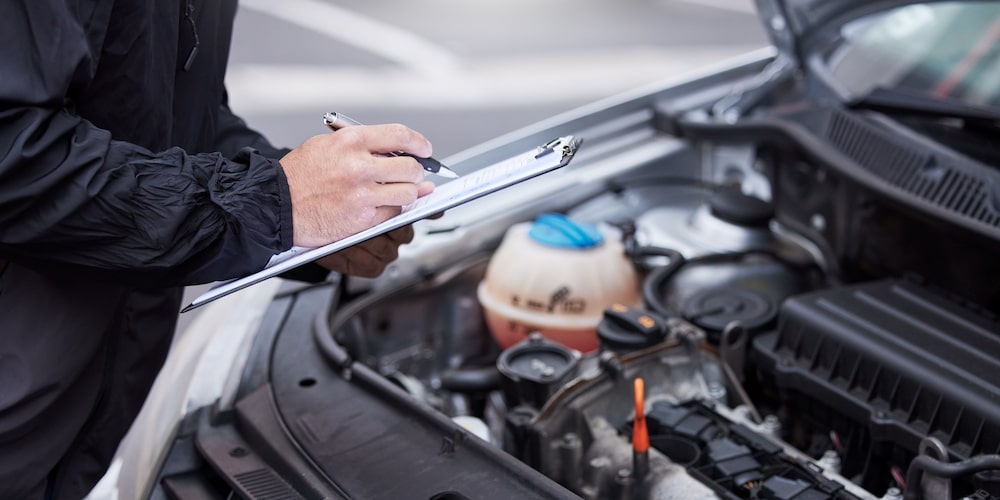Construction is one of the most dangerous careers in America, with one in ten construction workers injured each year while working on the roads, infrastructure, and buildings across the country. This often involves the use of dangerous and heavy equipment such as wheel loaders.
Wheel loaders, also called loaders, are a piece of four-wheel-drive earthmoving machines used to load loose materials, dirt, asphalt, and snow using the front-mounted bucket. Wheel loaders are often divided up into four categories depending on approximate power and bucket capacity, which includes: compact (40-100 HP, 1.0-2.5 cubic yards); small (115-180 HP, 2.5-6.5 cubic yards); medium (230-400 HP, 3.75-15.0 cubic yards); and large (horsepower of 1,800 or more and capacities that can exceed 30 cubic yards). While wheel loaders are one of the most commonly used pieces of construction equipment, they are not without risk.
If you have been injured in a wheel loader accident, contact 844 See Mike for a free consultation. We are a Chicago-based injury law firm representing individuals (and their families) who have suffered an injury in an accident. We will handle your case quickly and advise you every step of the way, and we will not hesitate to go to trial for you. Lastly, 844 See Mike is not paid attorneys’ fees unless we win your case. Our no-fee promise is that simple. You have nothing to risk when you hire us – only the opportunity to seek justice.
Wheel Loader Risks
Wheel loaders are found in a multitude of industries and perform a magnitude of tasks. Wheel loaders are not the largest pieces of heavy machinery in these industries however they are responsible for many accidents every year.
The most commonly seen wheel loader accidents according to the Occupational Safety and Health Administration (OSHA) include:
- Struck-by accidents – Bystanders often find themselves in the large blind spots of wheel loaders and operators unable to see them hit them with either the machine or the loader.
- Caught-in or between – Similar to struck-by accidents, caught-in or between accidents involve a worker being caught between the wheel loader and another object, such as a wall.
- Tip-overs – When a wheel loader is overloaded beyond the manufacturers’ recommended load capacity, driven at unsafe speeds, or operated on uneven ground, it can tip-over, injuring the wheel loader operator and bystanders.
To prevent serious or fatal wheel loader accidents, it is important that the operator is thoroughly trained in the safe operation of the machinery and the wheel loader should be routinely maintained to ensure it is safe for operation. In addition, a wheel loader that is defective in design and/or manufacture should never be used to prevent injuries.
The most common injuries seen in wheel loader accidents include:
- Bruises
- Lacerations
- Fractures
- Abrasions
- Amputation
- Crushing injuries
- Severe burns
- Permanent disabilities
- Head, neck, and spinal injuries
- Traumatic brain injuries
- Death
Liability in Construction Accidents
Under the Occupational Safety and Health Act (OSH ACT), employers have an obligation to maintain a safe working environment and follow the regulations of OSHA. If the employer, subcontractor, equipment manufacturer, or another employee fails to follow the appropriate standards of care and their actions or inactions cause an accident, they could be liable for the injuries and damages their negligence caused.
The Illinois Workers’ Compensation Act provides benefits, including medical and rehabilitation expenses, partial wages, and disability benefits to an injured worker regardless of who was at-fault for the accident. Workers compensation does typically prohibit an employee from suing their employer for the accident, however, there may be other options including filing a claim against a negligent third-party, such as a subcontractor, vendor, defective equipment designer and/or manufacturer, or general contractor who is not the employee’s direct employer.
Construction accidents are often complex, involving multiple parties and defendants. This is why it is important to contact
personal injury lawyer to determine your rights under Illinois law.
If you or a loved one has suffered injuries due to negligence on the job site or a defective product, the
lawyers at 844 See Mike can review your claim and determine if there were unsafe working conditions, potential OSHA violations, and other hazards that may have existed at the time of your accident. They will also determine who may be liable for your injuries and damages and what compensation you may be entitled to.
Helping our clients is about counseling, advocating, and ultimately solving problems. With years of experience successfully representing the people, not the powerful, we will take care of the insurance adjusters, your medical bills, your property damage, and your lost wages, and monitor your treatment so you can focus on healing and getting your life back to normal. Our unique formula has earned us over
1,000 outstanding client reviews on our website, an
A+ BBB rating, and over
135 five-star reviews on Google. Call 888-572-0176, e-mail us at michael@agrusslawfirm.com or schedule a meeting with us
here. We’re here 24/7.




